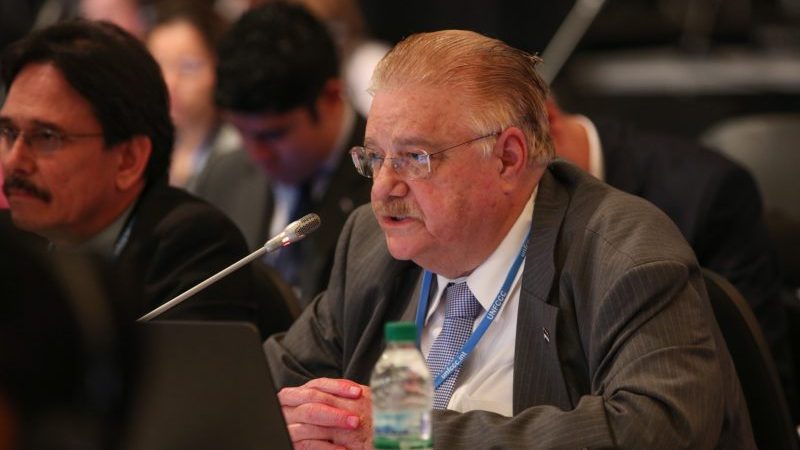Nicaragua’s announcement last month that it was joining the Paris Agreement had an ulterior motive, sources have told Climate Home News.
The central American country’s chief climate negotiator, Paul Oquist, is set to be the next co-chair at the multi-billion-dollar Green Climate Fund (GCF).
According to three diplomatic sources, Nicaragua lobbied for the position, but the fact that it had not signed up to the UN pact that underpinned the fund made the appointment awkward.
At the same time, left-leaning Nicaraguan president Daniel Ortega did not want to be seen as taking Donald Trump’s side. With Syria promising this week it too will join the Paris pact, the US is now the only country in the world to reject the 2015 landmark initiative.
Oquist’s appointment at the GCF is due to be confirmed in February. The 24-member board appoints two co-chairs, representing developed and developing countries, for 12-month terms. Oquist is currently an alternate board member.
He has ministerial status in Nicaragua and is close to the first lady and vice-president Rosario Murillo. Both are in charge of the country’s climate change policies.
In 2015, Nicaragua refused to join the Paris Agreement on the ground it was too timid. “We’re not going to submit, because voluntary responsibility is a path to failure,” Oquist told Climate Home News at the time.
Under a rotation scheme, the next co-chair from the developing world will be nominated by the Latin American and Caribbean nations. The current co-chair is Saudi Ayman Shasly. The co-chair is mainly responsible for steering the meetings, with decisions reached by consensus.
GCF is based in South Korea and meets three times a year. It started with $10 billion of funding pledged by developed countries to support poorer countries with low carbon growth and resilience to climate change impacts. At the last meeting in October, it approved 11 funding proposals valued at $393 million.
Oquist did not respond to a request for comment.
Climate Home News’ reporting at Cop23 is supported in part by the European Climate Foundation.
